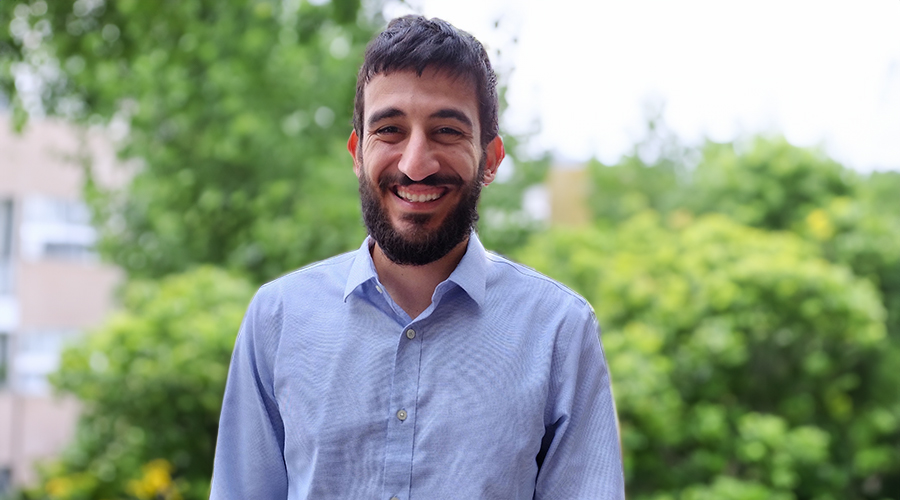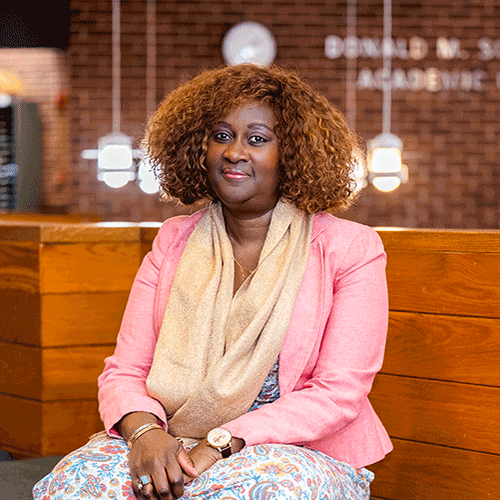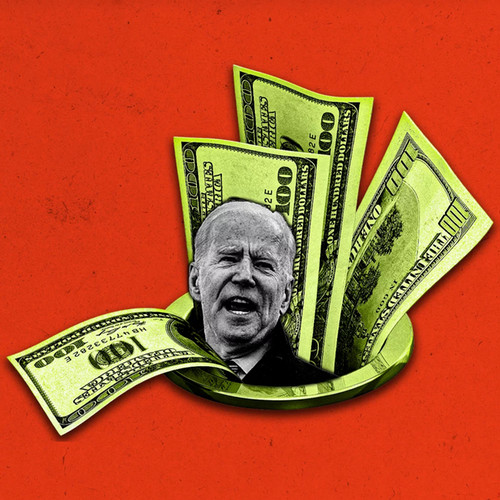
Eric Moyal ’17, MA’18, MS’21 is on a mission to make insulin affordable.
Just how exorbitant is the cost of the life-saving diabetes medication in the United States? A recent study found that 1.3 million Americans ration insulin specifically because they can’t manage the expense, putting their health at risk as a result.
Moyal first learned about insulin rationing three years ago while reviewing a colleague’s academic paper. Today he is the driving force behind Project Insulin, a nonprofit he founded to disrupt the tightly consolidated insulin market.
Moyal’s goal is to develop, manufacture and distribute generic insulin for millions of low income and underinsured Americans who cannot, or struggle to, afford it. A fundraiser by profession, he’s spent the last several years building support for the effort.
According to the U.S. Department of Health and Human Services, insulin costs $98.70 per unit in the United States, a whopping 685 percent higher than the next most expensive average in the developed world: Japan at $14.40 per unit.
“There are three big manufacturers that control most of the manufacturing process in the U.S.., and then there are a lot of middle organizations that bring up the cost,” said Moyal, describing the byzantine nature of the U.S. health care system. “What that signaled to me is that it’s not a science problem — it’s a money problem.
“With a business degree from Brandeis, a money problem is the kind of problem I’m uniquely qualified to fix. So this was an opportunity for me to help people with a chronic illness and make an impact in health care without needing a scientific background.”
Moyal is a graduate of Brandeis University, Brandeis International Business School and Brandeis Graduate Professional Studies.
He majored in business as an undergraduate before receiving the Brandeis Alumni Scholarship and Robert Sherman Memorial Endowed Fellowship at the International Business School, earning his Master of Arts in International Economics and Finance.
“I would not have been able to go to Brandeis if it weren’t for the scholarships I received,” said Moyal. “In fact, it was because of my scholarships that I ended up in the world of nonprofit fundraising. The skills I learned from being a fundraiser were the reason I was confident enough to venture on my own and start Project Insulin. And that all starts with the philanthropic nature of Brandeis donors.”
Moyal has long given his time and energy to make a difference for people managing chronic illnesses. As a student he organized bike rides from Boston to Miami to raise money for research on two rare conditions that afflict his younger sister — thoracic outlet syndrome and complex regional pain syndrome.
“The nature of these diseases is that there isn’t a cure,” said Moyal. “It’s management that allows you to live a more functional life. That’s what originally got me started thinking about the health care space and why I was looking for an opportunity to do something further.”
There’s been no shortage of headlines about the price of insulin.
In February, President Joe Biden called on Congress to extend a new $35 price cap for Medicare beneficiaries to all Americans.
Several drug manufacturers responded by announcing price cuts of their own, but health experts caution more needs to be done to impact all insulin users.
Moyal sees Project Insulin as part of that collective effort.
The amount of insulin a person needs depends on a lot of factors, but even patients using just one or two vials a month can still spend thousands of dollars each year on a life-saving medicine that costs about $10 per vial to make.
Moyal said Project Insulin is in the process of outsourcing its drug development, talking with local firms like ThermoFisher and Charles River Laboratories on designing and manufacturing the insulin. Another major next step: working with big local insurers to supply cheaper, high-quality insulin to their internal pharmacy systems.
But ultimately, Project Insulin isn’t in the game to help insurance companies. Moyal wants to ensure insulin is affordable for society’s most vulnerable.
“Our target audience is the uninsured, as well as those whose insurance co-pays are higher than what we would price our drug at,” said Moyal. “Hopefully this will help millions of Americans afford insulin.”
We are proud to recognize all donors and volunteers who helped advance Brandeis International Business School's mission in the past fiscal year. Learn how alumni and friends like you are helping our students. View the full Donor Impact Report.
Featured Stories
News Categories
@BrandeisBusiness Instagram
View this profile on InstagramBrandeis Intl. Business School (@brandeisbusiness) • Instagram photos and videos

October 25, 2023
The world is her classroom
July 6, 2023
Is the U.S. dollar on a decline: It’s complicated